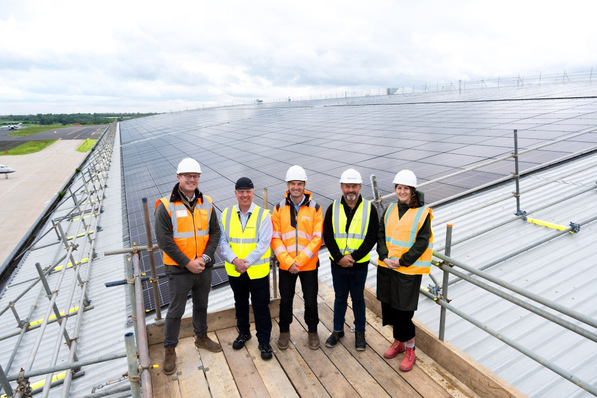This is the first control reserve study to be conducted in this part of the world and aims to quantify the control reserve requirements that are needed to balance the energy supply from wind and solar as well as energy demand, in accordance with the renewable energy plans of India’s southern states by 2022.
In 2016, the Indian Ministry of New and Renewable Energy (MNRE) announced one of the world’s largest renewable energy expansion programme, with the stated aim of generating 175 gigawatts of green power by 2022. This is planned to include 100 gigawatts of solar and 60 gigawatts of wind power. India is already one of the world’s leading clean-energy producers, with an installed renewables capacity of 83 gigawatts, plus 31 gigawatts under development and a further 35 gigawatts out for tender, according to the World Economic Forum.
Regional and global industrial powerhouse
The study is a further element in India’s drive towards expanding renewable energy. It forms a part of the Indo-German Energy Programme (IGEN), a joint initiative of the German Ministry of Economic Cooperation and Development (BMZ) and the Indian Ministry of New and Renewable Energy (MNRE), implemented by GIZ India. The study was carried out on behalf of the Southern Regional Power Committee (SRPC), a Government of India enterprise, and covered the southern states of Kerala, Tamil Nadu, Karnataka, Telangana and Andhra Pradesh.
Related article:
Results of successful long-duration PV reliability test
“India is a regional and global industrial powerhouse, consuming more than 6,600 terawatt hours of energy every year. Hence, its plan to grow renewable energy is both bold and promising. Because of these factors, this study proves to be a key step towards ensuring the quality of the energy supply within this plan,” says Markus Wypior, officer for implementation at GIZ.
Expertise from 2,300 energy experts
“India is in the midst of a very ambitious journey that will put it at the forefront of the global energy transition. This study, implemented for the southern states, with support from GIZ, would serve as a prime example of the Indian government’s commitment to making this journey a success. DNV GL is proud to play an active role in enabling the country’s green energy transition. The expertise from our 2,300 energy experts around the globe will be of great value for India,” said Nicolas Renon, Executive Vice President APAC, at DNV GL – Energy.
See also:
Belectric commissions large-scale solar project in India
For the study, DNV GL utilised its Renewable Energy Integration Study and Control Reserve Dimensioning Services to quantify the secondary and the tertiary control reserve requirements that will enable optimal sharing of power between the states. Dimensioning of the states’ control reserves will help ensure efficient and cost-effective integration of large-scale renewable energy supplies. DNV GL will provide recommendations to SRPC for control reserve requirement identification based on the final report. (mfo)







